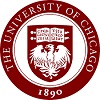Job Description
The degree offers an intensive period of advanced study in a chosen field, with rigorous training in relevant research methods. It offers the opportunity to gain specialist knowledge of distinct topics within the field of study and includes an element of scholarly research and writing which can constitute part of the training for a future research degree.
The course is taught through a combination of core classes or tutorials, and regular meetings with your supervisor, either one-to-one or in a very small group. Attendance at other lectures and seminars may be recommended or required. The topics being studied will normally be covered during the first two terms.
You learn to analyse and evaluate both primary and secondary literature, how to select the most significant materials, and combine them to form a structured argument. You also develop the habits of critical questioning, clear exposition, and objective evaluation.
The number of students studying in each subject area varies between individual disciplines but is usually small, allowing teaching to be tailored to the needs and interests of each student.
Students are encouraged to attend and participate in research seminars in their subject area. There are regular research seminar series in the Old Testament/Hebrew Bible, New Testament, Patristics, Modern Theology, Church History and Christian Ethics. Other research seminars of interest are hosted by other faculties and regular seminars, colloquia, and conferences are organised by the interdisciplinary research centres affiliated to the Faculty.
The choice of essays and dissertation topics is decided by the student, subject to advice from the supervisor, and final approval from the Graduate Studies Committee at the Faculty of Theology and Religion. For those who intend to proceed to the DPhil, the topic of the dissertation normally provides a foundation for doctoral research.
Students apply to work in one of the following areas:
- Old Testament
- New Testament
- Christian Doctrine, specialising in one of the following sections:
- History of Doctrine: Patristic Theology (c. AD 100-787)
- Modern Theology (post-1789)
- Ecclesiastical History (AD 200-600, AD 400-110, AD 1000-1500, AD 1400-1800, or AD 1800 to present)
- Christian Ethics
- Biblical Interpretation
- Science and Religion




